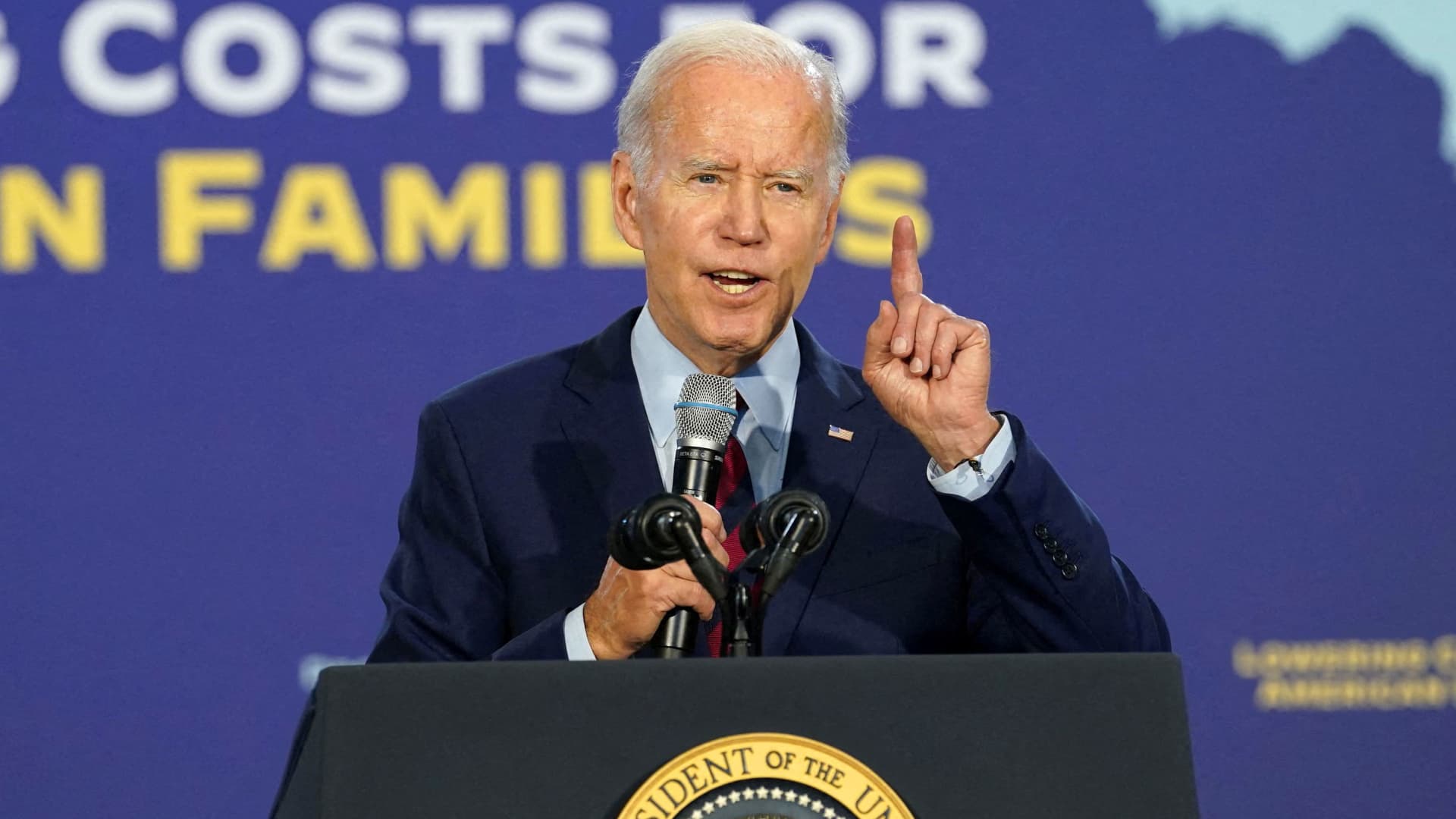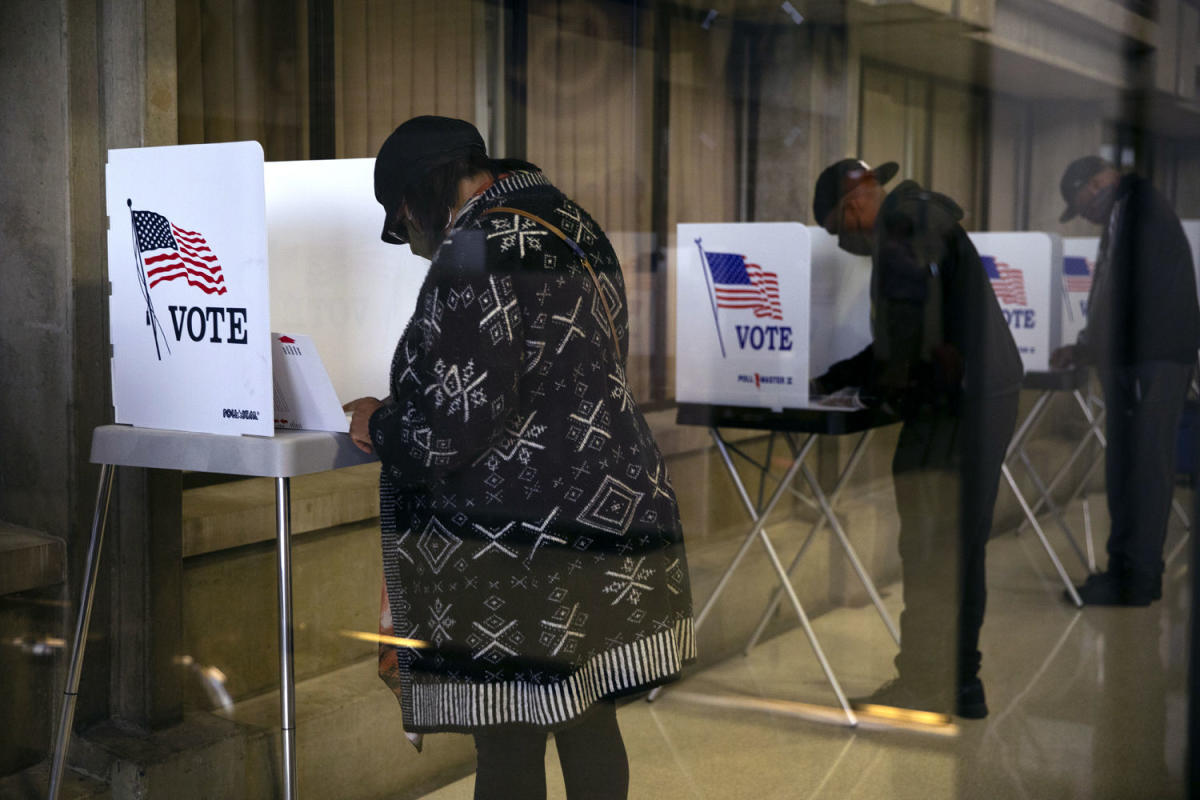President Joe Biden speaks about protecting Social Security, Medicare, and lowering prescription drug costs, during a visit to OB Johnson Park and Community Center, in Hallandale Beach, Florida, on Nov. 1, 2022.
Kevin Lamarque | Reuters
The Biden administration on Thursday asserted its authority to seize the patents of certain costly medications in a new push to slash high drug prices and promote more pharmaceutical competition.
The administration unveiled a framework outlining the factors federal agencies should consider in deciding whether to use a controversial policy, known as march-in rights, to break the patents of drugs that were developed with federal funds but are not widely accessible to the public. For the first time, officials can now factor in a medication’s price — a change that could have big implications for drugmakers depending on how the government uses the powers.
“When drug companies won’t sell taxpayer-funded drugs at reasonable prices, we will be prepared to allow other companies to provide those drugs for less,” White House National Economic Advisor Lael Brainard said during a call with reporters Wednesday.
The administration’s announcement follows a nearly nine-month review of the federal government’s march-in rights, which aimed to update the framework for using the policy. It also comes as President Joe Biden makes lowering U.S. drug prices a key pillar of his health-care agenda and reelection platform for 2024.
Political pressure has pushed health-care companies to launch their own efforts to lower drug prices. CVS on Tuesday unveiled a new prescription drug pricing model, which could potentially cut costs for patients at the pharmacy counter.
Nearly three in ten Americans struggle to pay for the drugs they need, according to a July survey from health policy research organization KFF. And some research suggests that U.S. patients spend about $1,200 more per person on prescription medications than those in any other nation.
Yet taxpayers have spent tens of billions of dollars to fund hundreds of drugs in the last decade — which the Biden administration believes could justify more government action to cut prices.
It is unclear whether and how federal agencies will use march-in rights under the new framework. Notably, “no agency to date” has exercised the policy, which came about under the Bayh-Dole Act of 1980, a senior administration official told reporters Wednesday.
Still, the Biden administration’s new push to use march-in rights could eventually have major ramifications for the pharmaceutical industry, which has long argued that the policy discourages research and development of new drugs.
Drugmakers have argued that seizing the patent for a medication makes that treatment vulnerable to competition, which can reduce a company’s revenue and limit how much it can reinvest into drug development.
That pushback has made the federal government reluctant to use march-in rights in the past, which has frustrated progressives on Capitol Hill.
Activists protest the price of prescription drug costs in front of the U.S. Department of Health and Human Services (HHS) building on October 06, 2022 in Washington, DC.
Anna Moneymaker | Getty Images
The pharmaceutical industry’s largest lobbying group slammed the Biden administration’s push to exercise march-in rights in a statement.
“This would be yet another loss for American patients who rely on public-private sector collaboration to advance new treatments and cures,” said a spokesperson for Pharmaceutical Research and Manufacturers of America, which represents drugmakers such as Pfizer, Eli Lilly and Johnson & Johnson. “The Administration is sending us back to a time when government research sat on a shelf, not benefitting anyone.”
Both the Obama and Trump administrations have rejected march-in requests from lawmakers and patient advocates. The Trump administration even proposed a rule that would prevent the government from exercising the policy based on the high price of a drug alone.
The Biden administration chose not to finalize that proposal earlier this year, according to a release from the White House on Thursday.
But the Biden administration has also shied away from using march-in rights up until now. In March, the administration declined to break the patent of the costly prostate cancer drug Xtandi from Astellas Pharma and Pfizer.
The drugmakers charge more than $150,000 a year for Xtandi in the U.S. before insurance and other rebates, but charge a fraction of that price in other developed countries.
The Biden administration has attempted to lower drug prices in other ways, such as giving Medicare the power to negotiate drug prices for the first time in the federal program’s 60-year history as part of the Inflation Reduction Act.
But Xtandi was excluded from the first ten medications the government selected for negotiations, which prompted Astellas Pharma to drop a lawsuit it filed to halt the price talks.

Amanda Smith is a dedicated U.S. correspondent with a passion for uncovering the stories that shape the nation. With a background in political science, she provides in-depth analysis and insightful commentary on domestic affairs, ensuring readers are well-informed about the latest developments across the United States.








